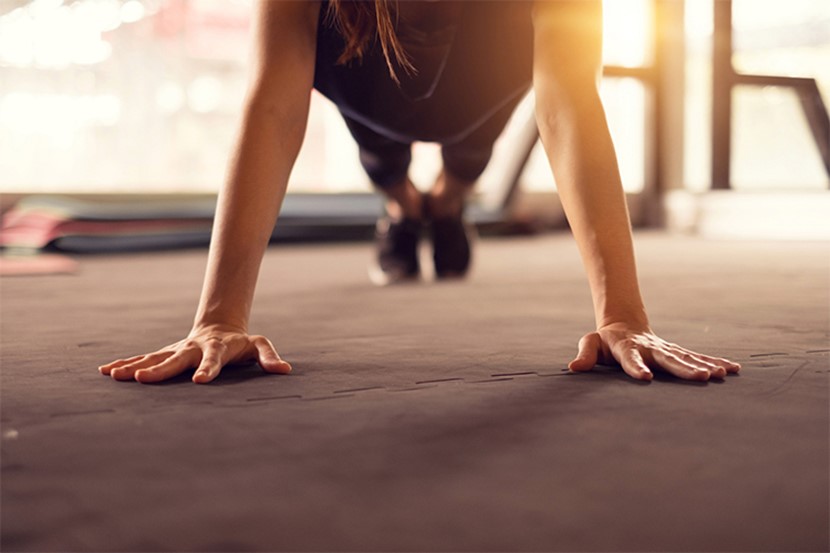New mums: why and how to strengthen your core muscles

Pregnancy is a beautiful but tough time hose nine months spent growing a human will take their toll on your body in many different ways, especially your abdomen or your 'core'. Being a new mum requires lots of lifting and carrying, so being strong and well-supported in your core will benefit you greatly. Simone de Cunha explains how to strengthen your core after birth.
How does pregnancy affect your core exactly?
Due to the fact that your incredible body must grow a baby from the size of a pea to sometimes up to 10 pounds, there are so many ways pregnancy affects your core. The hormone relaxin floods the body which loosens the pelvis, the low back shortens and tightens due to weight distribution shifting to the belly and all the muscles stretch weaken. We are talking the pelvic floor family, transverse abdomenals and the obliques. As for rectus abdominis, more famously known as the six-pack muscle, in many women it splits down the middle (linea alba) and causes diastasis recti.
What are the signs that new mums need to work on their core strength? What’s happening?
Signs could come in the form of feeling a weak openness in the front of the body, mild to severe incontinence (wee escapes while sneezing, coughing or jumping), niggling back pain on lifting baby, shoulder tightness and pain, and soreness in the hips. Also a new mum’s posture has shifted dramatically following birth and carrying during pregnancy often resulting in sway back or a deep lordosis (exaggerated low back curve).
What exercises will help? What exercises (and activities) will not help?
It’s important for a new mum to not do any abdominal flexion – any curl ups, sit ups, or exercise that crunches forward the front of the body for up to six months, or more for some mums . When rehabilitating, we must always work the deepest core muscles from the inside out – basic pillow squeezes or leg floats. It’s important to remember that it’s not the exercise itself that will heal mum fully, but the knowledge of correct technique so that the exercise is effective and new habits are formed.
What kind of attitude should new mums have to strengthening their core and doing exercises?
Go slow. Be gentle. Go deep. Focus on learning good core functional technique. It didn’t take a few weeks to form your baby and for all the changes to take place within your body, so don’t expect to be completely back to your version of “normal” in that time either.
Why is it so important to strengthen that area?
How long do I have? I could talk about this all day! For all of us it’s essential, but for new mums it takes on a whole new meaning. Organs have been shifted, muscles stretched, weakened and split (diastasis recti), and your posture will now look different. In order to stay injury-free, recover your body and move effectively and freely, it’s necessary to regain strength in this area.
What happens if you do nothing?
It will be highly unlikely that your body will retreat to its pre-baby grace, and you will be more prone to injury in areas like your back, shoulders and hips. You could have a prolapse. Incontinence can creep up on you later in life. Keeping up with your kids will prove problematic. There are so many reasons not to do nothing!
What should you aim for comfort-wise, time-wise, heart-rate wise?
Heart rate is irrelevant with postnatal core strengthening, that comes later once the core is functioning effectively. With respect to comfort, it is subtle but effective and you’ll feel a tightening in that area which shouldn’t be painful but should be somewhat challenging. Time-wise, I suggest around 10 minutes a day as a guideline, but finding other pockets of the day to do simple pelvic floor exercise or to wear a targeted splint is effective also. Eventually the exercises we do become habitual and as new mum’s progress the challenge and time can be stepped up.
Simone de Cunha is an internationally certified postnatal rehab specialist, functional Pilates trainer, instructor trainer, Masters educated journalist and life coach with over 20 years international experience helping mamas restore their core after baby.

